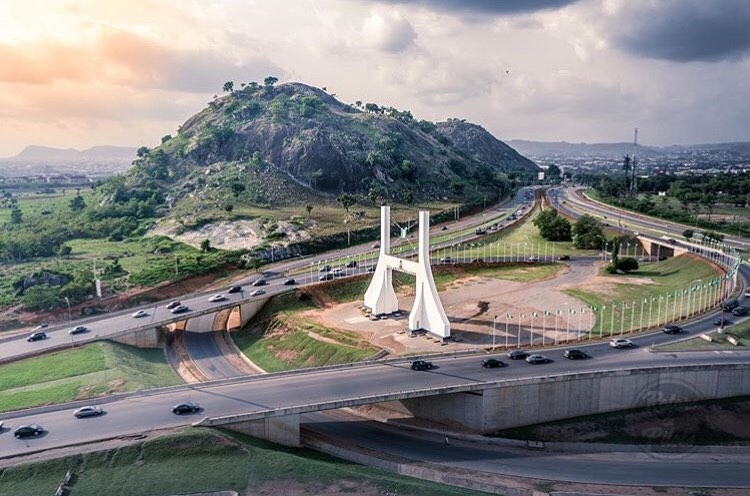At the end of July 2025, the world was shocked to learn that 169 people, including 93 children, had died of malnutrition in Palestine since the outbreak of the devastating war with Israel. For context, the war has gone on actively for close to two years. Tragic and painful as this figure is, it is utterly dwarfed by a chilling statistic from Nigeria: over 652 children have died from malnutrition in Katsina State alone, and that’s just in the first half of 2025.
This jarring incongruity provokes a bleak and sobering question: How can a nation not technically in war end up outpacing a war zone in deaths due to hunger and malnutrition?
The answer lies at the intersection of poor governance, chronic insecurity, and systemic neglect.
Nigeria, Africa’s most populous country and one of its largest economies, is officially at peace. It enjoys a democratic government, a huge bureaucracy, and vast natural and human resources. Yet it continues to record child mortality from malnutrition that rivals or surpasses that in active war zones.
The latest report from Doctors Without Borders (MSF) on Katsina is most alarming. Katsina, located in Nigeria’s northwest, is a besieged state by banditry, kidnappings, and deepening insecurity. In Katsina, whole villages have been turned into ghost towns and farmlands into killing fields. As a result, food production has dwindled, healthcare systems have broken down, and families have been forced into displacement, poverty, and starvation.
The root of the crisis points to both structural and systemic failures. Malnutrition, especially in children, is both a symptom and a signal. It indicates a broader failure of the health system, food distribution channels, social protection programs, and ultimately, government accountability.
The key issues driving the malnutrition crisis in Nigeria are numerous. First, armed violence, especially in northern Nigeria, has led to mass displacements. Families fleeing for their lives leave behind farms and other means of livelihood. Internally displaced persons (IDPs) camps are often overcrowded, underfunded, and inadequately supplied with food and clean water. Children under five, the most vulnerable, suffer the most.
Secondly, in many parts of northern Nigeria, healthcare delivery is either non-existent or dangerously underfunded. Malnutrition requires urgent and specialised treatment, something scarce even in urban centres, let alone rural communities ravaged by conflict.
Then there is the issue of cuts in international funding. MSF attributed part of the problem in Katsina to funding cuts by international donors. As global attention shifts to other emergencies, including Ukraine, Sudan, and Palestine, humanitarian support to Nigeria has dwindled. But this raises a painful point: Why is the Nigerian government not stepping in to fill the void?
Another challenge is the failure of preventive nutrition programs. Nigeria has repeatedly failed to sustain preventive nutrition programs that address child hunger and undernutrition before they become life-threatening. School feeding programs are poorly implemented or discontinued in many states, and outreach on infant nutrition and breastfeeding is inconsistent at best.
Plus, malnutrition doesn’t make headlines like terrorism or economic policy. As a result, the issue often slips under the radar of national priorities. There’s a lack of real-time data, poor coordination among ministries, and a bureaucratic unwillingness to act until disaster strikes.
The effects of runaway malnutrition deaths are long-term and deeply unsettling. Think human capital loss, undermined development goals and national and international shame. It’s a ticking time bomb.
I concede that there is no magic bullet. Yet, I’ll argue that the path to the solution requires urgent, coordinated, and sustained action. In my mind, the way forward is to move from rhetoric to action. Here’s what must happen now:
Malnourishment must be officially declared a national emergency. The state and federal governments need to increase nutrition-sensitive interventions and allocate ring-fenced funds to food relief, health centres, and child care.
In addition, primary health centres need to be able to detect, treat, and manage malnourishment cases. Trained workers, therapeutic diets availability, and a functional cold chain need to be the standard, not a luxury.
Besides, the government must secure farming villages, especially in the North, and invest in agriculture. Farmers need to be protected, provided with equipment, and incentivised to plant crops. Food insecurity is the first domino that must fall in the malnutrition chain.
Moreover, Nigeria must regain confidence with international donors as well as develop homegrown solutions. Partnerships with NGOs, faith-based organisations, and community leaders can be used to increase reach and amplify impact.
Furthermore, the Nigerian public must demand transparency and accountability. Children dying from hunger are not just statistics; they are indictments of leadership failure. Civil society must amplify its stories and push for reforms.
It is unacceptable that Nigeria, a country with so much potential, is losing more children to malnutrition than countries at war. We all should ask ourselves this question: What is peace worth if children are starving and dying?
The time for silence has passed. Nigeria must act now to stop the silent war of hunger that is killing its future. History will not be kind to us otherwise.
Elvis Eromosele, a corporate communications professional and sustainability advocate, wrote via elviseroms@gmail.com.
The post WHY IS NIGERIA RECORDING MORE MALNUTRITION DEATHS? appeared first on THISDAYLIVE.



